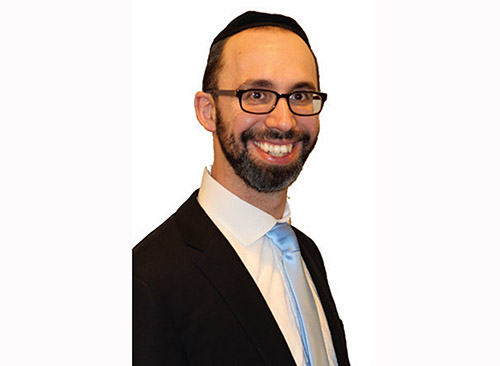
As my wife and I passed by the ladies’ shoe department in a large department store, we saw hundreds of pairs of beautifully displayed expensive shoes. Suddenly we came to a jarring sight. An area of shoes all jumbled together on the shelves, others lay strewn all over the floor; shoes of all sizes mixed together: chaos! This was the clearance area. Yet each shoe was a designer model, no different from the shoes carefully organized and displayed in the front. The shoes’ identity and worth was a product of their place, not their intrinsic value.
Interestingly, one of the names we use to refer to Hashem is “Hamakom”—The Place—as we say in the Haggadah, “Baruch Hamakom Baruch Hu.” Why is Hashem referred to as The Place? It’s because a place gives us a sense of belonging. A displaced person feels lost—an item that does not have an appropriate place is not considered valuable. A place helps give a person or object its role and orientation, such as a teller who stands behind a counter in the bank. His place defines him as the teller, while the person approaching the counter is viewed as the customer. On the other hand, Hashem is The Place of all places: He gives everything its place and identity.
This concept helps us understand a compelling question. The Torah states (Shemot 13:40), “Bnei Yisrael dwelt in Egypt for 430 years.” Rashi points out that Bnei Yisrael were physically only in Egypt for 210 years. Rashi explains that the Torah counts the period of exile from the time the Patriarchs were displaced, not living on their own land. Yet why does the pasuk use the words “in Egypt”? Granted, they were displaced for 430 years, but surely they were not actually in Egypt for that period of time!
The Maharal shares an eye-opening explanation. The exile began when Hashem informed Avraham Avinu that he was destined to go into exile to Egypt. From that moment on it was considered as if they were in Egypt: a person’s location is determined by his destination. Once Hashem decreed that Bnei Yisrael must descend into exile in Egypt, it was as if they were there, because that was their destiny!
This teaches us a lesson: When we have a destination—even when we are still at home—it is as if we are there. A person’s place is not necessarily his present physical location, but rather his relationship to a place. When we plan a vacation, our minds are constantly envisioning that vacation months before we depart.
Throughout the Gemara, our Sages say of various actions, “Whoever does this is a ben Olam Haba, a son of the World to Come”; but how can someone be part of the World to Come while we are alive in this world?! Now we understand: a person’s actions demonstrate that his focus and destination is the World to Come. Since his mind is on that place, it’s as if he is already there! Such a person lives by the words of the Ramchal in the opening of his epic sefer, Mesilat Yesharim: “This world is merely a portal to the World to Come.”
The more we think about this concept, the more embedded in us it will be. Hashem is “The Place” of the world because He gives us our identity. Yet we have the freedom to focus on our goals and destinations, to define ourselves and choose our true location. We might be living in New Jersey, but hopefully Hashem considers us part of the citizens of Olam Haba!
We can start by applying this lesson in a very day-to-day way. When we check our messages while interacting with a colleague, friend or spouse, we signify that we are not fully relating to the person with whom we are interacting. Similarly, when we are praying or studying and our minds drift to all the errands we need to do or conversations we had or will have, then we are not fully connecting with Hashem.
Our minds determine our place; it’s where we have our focus and interest.
If we set our goals and priorities in a manner to align with Hashem’s will and plan, then we can be assured we will always be in the right place.
By Rabbi Baruch Bodenheim
Rabbi Baruch Bodenheim is the associate rosh yeshiva of Passaic Torah Institute-Yeshiva Ner Boruch. PTI is a yeshiva designed to provide in-depth learning for working men (and their wives!). PTI’s unique approach and dynamic shiurim attract people from all over Northern New Jersey, including Teaneck, Bergenfield, Paramus and Fair Lawn. He initiated and continues to lead a full multi-level Gemara learning program in the evenings, gives Halacha and hashkafa shiurim, and has spread out to begin a weekly beis medrash program with in-depth chavruta learning in both Livingston and Springfield, New Jersey.











